Disclosure: I sometimes earn products or commissions from affiliate links or partnerships on my blog. I only recommend products and services I trust to serve you. Learn more.
In March 2020, grocery store shelves ran barren of toilet paper, milk, eggs, and bread. Everyone panicked about where they were going to get the staples they needed to feed their families. Well, almost everyone. You see, most seasoned homesteaders were doing just fine. And as regular folks slowly realized the value of keeping backyard chickens and making sourdough bread, they did two things.
The first was to make this meme:
The second was to start hoarding baby chicks. But before YOU go out and buy yourself a coop and chicks and seed packets and all the homesteading things, chill. There are some things you should know.
Having all the homesteading things does not make one a homesteader. It does not make you any more self-sufficient than you were five minutes ago. How do I know?
Because it didn’t make me any more self-sufficient either! Three years ago I received a seed bucket to review and had no idea how to actually plant or care for 90% of the stuff in there. And just TODAY I realized that a crop I thought was supposed to be planted in the spring is actually a warm weather veggie.
Whoops! No wonder my seedlings wouldn’t grow.
So where do you even start if you want to homestead?
I started as an absolute black thumb who could hardly grow a tomato in a bucket. Years later, I have an active garden and live in a solar-powered home I built alongside my husband. None of that happened overnight, so in these uncertain times, give yourself the grace to be a beginner.
I have some easy tips to help you get started no matter what facet of homesteading interests you the most right now. Whether you want to start a garden to be less reliant on the grocery store, keep some backyard chickens to have fresh eggs, or make sourdough bread, there are some basic things to keep in mind in order to be successful.
If the state of the world has you yearning for a simpler life, welcome! Here are my top tips to help you be successful as a beginning homesteader.
7 Helpful Tips for Beginning Homesteaders
1. Consider your existing lifestyle.
If you live in the middle of a crowded suburb or in a patio apartment, your homesteading needs are going to be different than someone living on 16 acres. That is OKAY! Homesteading is a lifestyle, not a list of requirements. Ask yourself:
- What are my real goals for homesteading in my life?
- What tasks am I physically able to do?
- How much space do I have for gardening (including tool storage, seed starting space, etc.)?
- How much time do I want to devote to tasks like gardening, livestock care, equipment maintenance, etc.?
- Do I want small livestock? For what purpose?
- If I get any animals, where will they go? How will I care for them?
- Are there any local laws or regulations that could prohibit my homestead dreams (i.e. bans on backyard livestock or restrictions on accessory structures like coops or sheds)?
- What other skills do I want to develop (i.e. sewing, soap-making, baking, cooking, canning, foraging, wildcrafting, etc.)?
Related: Our Favorite Books for Homesteaders
Overall, if you have a heart that is ready to learn, you can absolutely make your homesteading dreams a reality. But don’t feel like you have to have yourself a mini-farm overnight. That leads to the next tip.
2. Take it one project at a time.
It’s tempting to try to start all kinds of projects when you’re determined to start homesteading. But if you try to take on too much at once, it’s almost guaranteed you’ll overwhelm yourself and burn out before you really have a chance to enjoy it.
Instead, choose one facet of homesteading you think is most attainable to you and focus on that. By choosing one, you free yourself to dive deep into learning everything you can about it. Take gardening as an example.
Gardening in itself is a rather broad topic, so let’s say you narrow it down to learning how to make a simple container garden for your patio. You could devote some serious time to figuring out what crops grow well in containers and which of those crops you and your family most enjoy eating.
You can then look at the specifics for growing that crop; should you start it inside or can it be sown outdoors? What kind of potting soils are best? How can you get containers for cheap or free? Once you have enough information to get started, you can dive in and test it out.
Learn about how we created our inexpensive container garden here and get different container garden ideas here.
After that, you can move onto another project. But no matter what project you choose, remember:
3. Start small.
I don’t have a huge mega garden. We have a few small veggie gardens. Why? Because I know that for our family, having a giant food garden would require a lot of time and mental effort that we’re not willing to spend right now. I’ve barely gotten into using my pressure canner (though I have gotten over the initial fears of it) so I have no grand illusions of me happily tending a canner day in and day out to preserve dozens upon dozens of food jars. Maybe one day I will, but I will work towards it gradually. I will make sure that I learn it right and learn it well.
Related: Awesome Gardening Resources for Beginners
4. Consider your capabilities.
I’d love to tell you that you’re capable of anything if you just apply yourself. To tell you nothing is impossible! But the reality is we all have some limits. What matters is how we work with our circumstances.
Try as I might, I cannot lift a 200-pound framing member with just my muscles. I can, however, rent a manual lift from the local machinery rental store to hoist those beams into place. Or I might not have the resources and abilities to amend ALL of the hard clay soil around our house right away, but I can make small gardens healthy a little bit at a time.
You may lack the strength, ability, space, or resources to get certain homesteading tasks done in “the usual ways”, but that doesn’t have to stop you if you don’t want it to.
If you really want to reach a certain goal, you’ll figure out how to do it. Maybe you’ll have to modify how you do something (i.e. keeping a few pots of tomatoes if you don’t have enough yard for a huge garden). And sometimes you may have to put a goal on the backburner or abandon it.
It doesn’t mean that it was a bad idea or that you’re incapable, it means you’re prioritizing effectively. It means you’re working with what you have in a better, more efficient way. You’re dealing with reality and not fighting windmills. That will set you up for even bigger success with the homesteading tasks you DO pursue.
And what should you pursue? Lots of people recently decided that keeping backyard chickens was a great idea, and I would hope some planning went into that decision. Why? Because it’s super important to do this next thing:
5. Research before you buy things.
With the chicken example: if you want a flock, that’s great! But what breed(s) do you want? What do you know about them? How do you intend to feed them (feed, forage, etc.)? Do you know some of their basic health needs? What size and type of coop do you need? How much space do they require? How will you protect them from predators?
If you just run out to the farm supply store and buy up all the baby chicks without a plan, you’re in for a world of hurt.
Or maybe you’ll end up like us, not yet having chickens but taking a trip to meet some dude from Craigslist about a chicken coop, deciding to pay him for it, taking it home, and THEN realizing how tiny and fallen apart it is. Maybe it’ll make do for a couple of chickens eventually. Or maybe we paid $50 for a bunch of fancy scrap wood. Time will tell. Either way, it’s going to be used for SOMETHING because we live by this one core value:
6. “Use it up. Wear it out. Make do or do without.”
I think if any particular phrase really speaks to the homesteader ethos, it’s this one. Most of us aren’t homesteading because it’s the easy way. We homestead because it’s the right way for us and our families. A homesteader resolves to waste nothing, to use what they have to the fullest, and to appreciate what they have in the moment.
There’s a certain level of contentment and satisfaction in work well done. In work that you know in your bones is helping your family to live healthier lives.
Homesteading is not about prepackaged convenience. It means waiting to see those chickens lay the first eggs. Waiting to see those sprouts pop out of the soil. Waiting to harvest your first crops and cook your first meal with them. And then savoring each and every morsel.
Related: What even IS modern homesteading??
Homesteading requires patience and thrift. Embrace it. Doing that is so much easier when you follow this last tip:
7. Find community.
Even in a time of distancing, homestead communities abound online. You can join a homesteading group on Facebook or partake in discussions on Reddit. Chat with friends who have kept chickens or grow a garden and ask them questions. Contact homestead folks like myself on Instagram or via email. There are lots of ways to connect!
And once we can venture out into the big wide world again, look for meetups in your area of gardeners or backyard homesteaders. Your local cooperative extension office or library may host classes or discussion groups you could attend. The possibilities are only limited by your willingness to go out and make some homesteader friends!
I’m an introvert to my core and if I say this is an important part of the process, you can bet that it’s true.
Now more than ever we can see the value of having a community. Let’s work together to make it a robust and accepting one as more and more newcomers enter the fold. Whether you’ve been homesteading for 40 years or 40 minutes, you’re all welcome here.
Ready to dive into a world of homesteading? I’ve got you covered. Keep reading here:
- How We Built Our Homestead From Scratch
- Our All-Time Favorite Books for Homesteaders
- Best Books for Folks Who Want to Build a House
- 5 Unexpected Lessons We Learned From The House We Built
- Homesteading When You’re Completely Overwhelmed
- 5 Ways to Build a House on a Tight Budget
- What IS An Accidental Hippy Anyway? (Sustainability for “normal” people)
- What Does It Actually Mean to “Live Off The Grid”? (a look at our normal life on solar power)
Want to build a homestead of your own someday?
Learn all about our off-grid cordwood homestead project here and sign up to get a free Homestead Builder’s Quick-Start Guide plus access to all of the free homesteading guides in our Resource Library!
Be sure to join us on Pinterest, Facebook, and Instagram for more homesteading goodies that don’t necessarily make it to the blog. Thanks for reading!
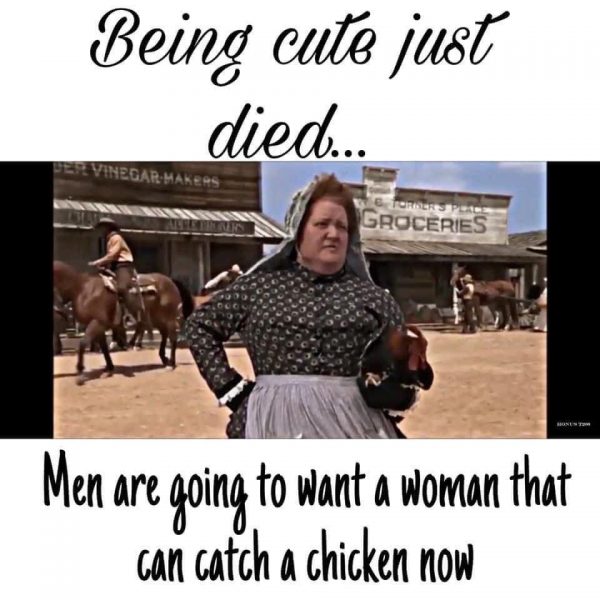
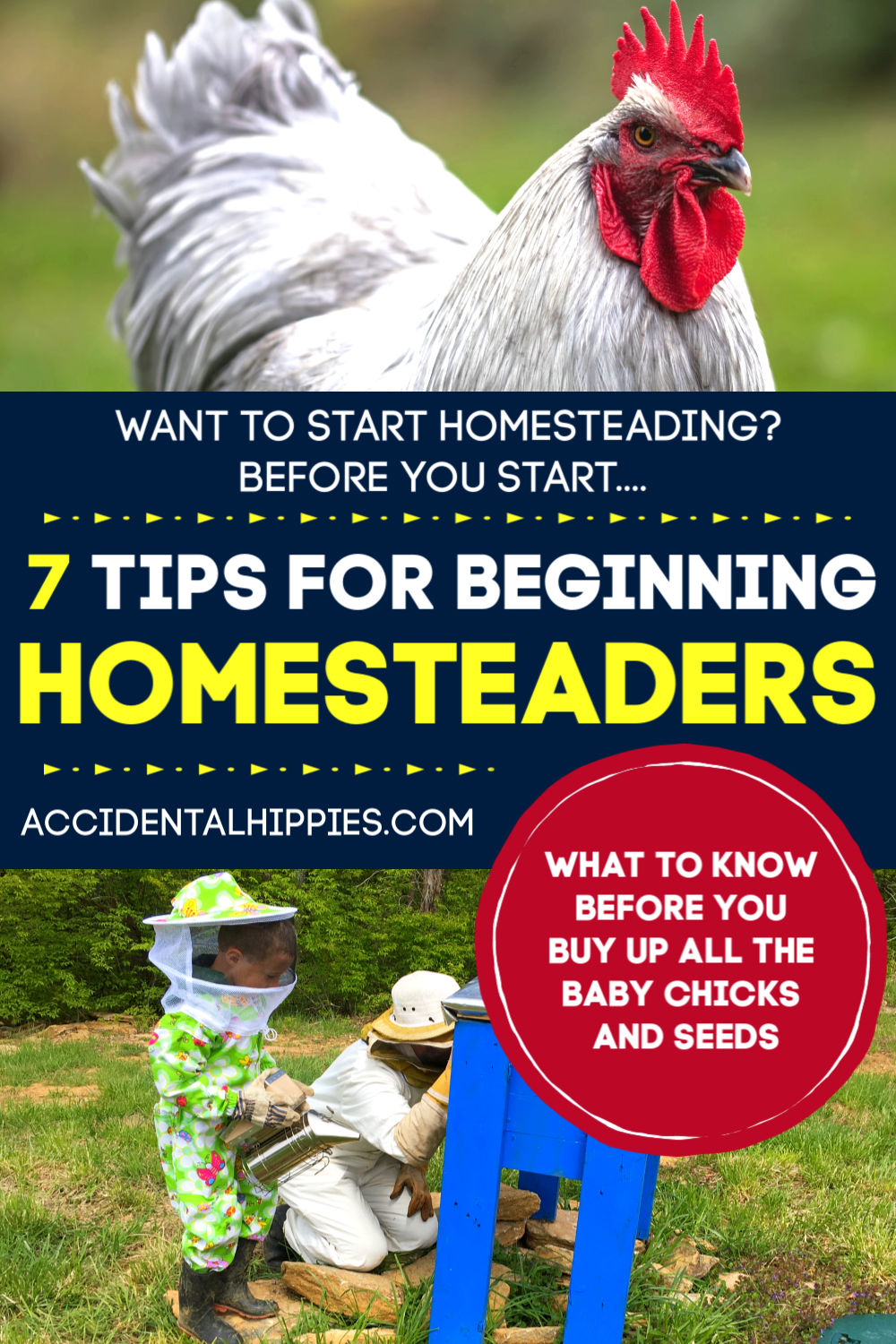
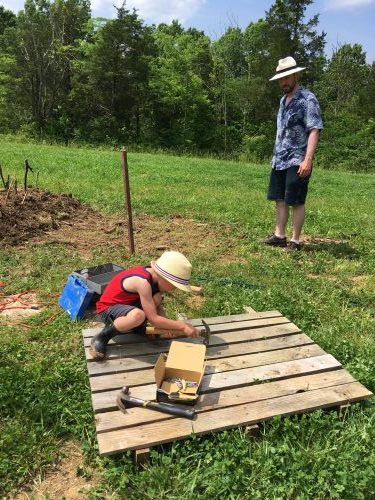
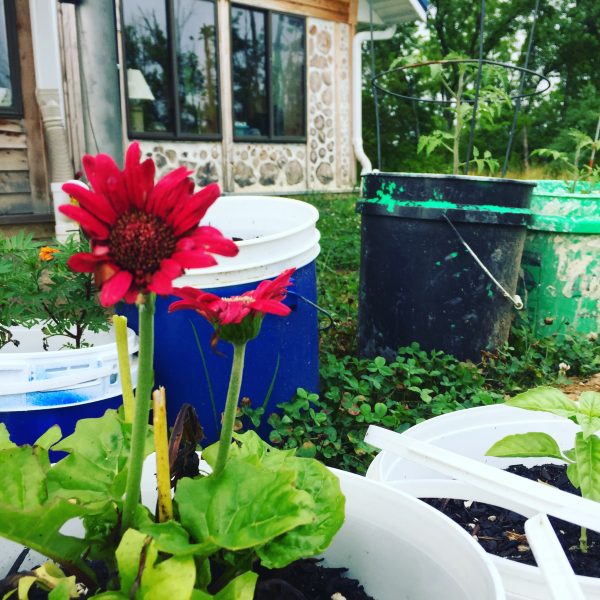
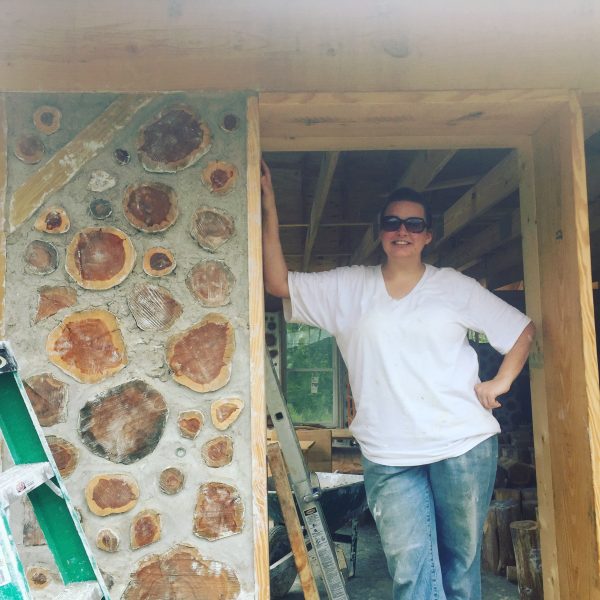
Thank you for sharing Emily. Very practical information here. I live on a half acre in a small village, which you so aptly mentioned has different needs than a patio apartment of on 16 acres. Gardening the thing I enjoy most in my little homestead.
Thanks! Gardening is what I enjoy most too. 🙂